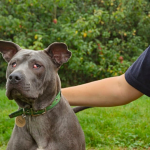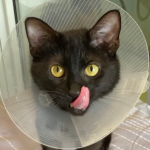
Be ‘Vaccination Aware’ this National Immunisation Awareness Month!
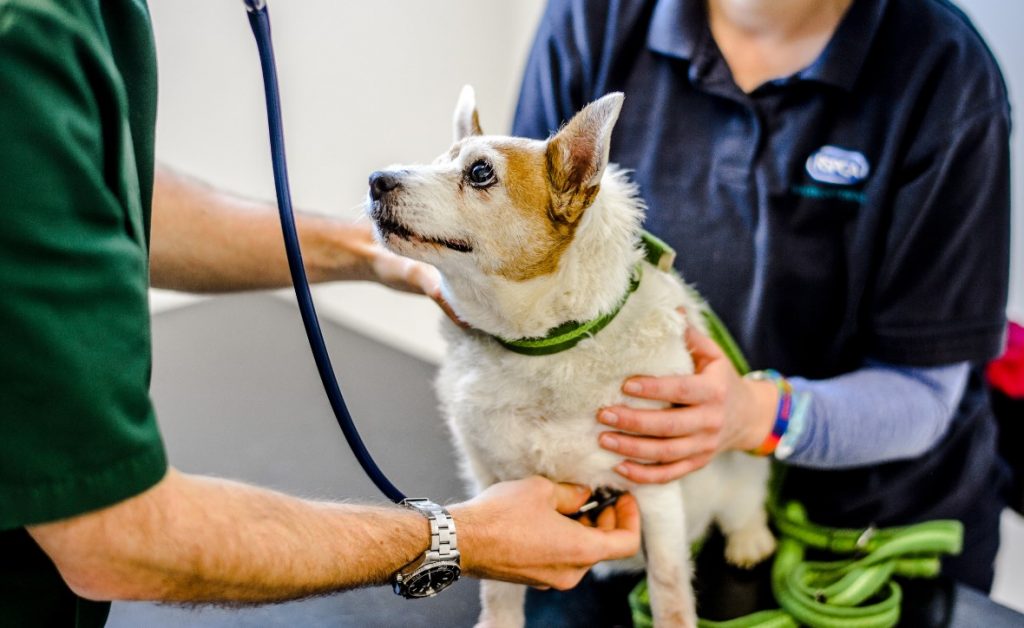
Vaccinations are an important way to protect your pet from some nasty diseases, and ensure that the wider animal - and human! - population stays safer too.
August is National Immunisation Awareness month, so there’s no better time to make sure you’re clued up on all the vaccines your furry friend needs!
An appropriate vaccination schedule should be tailored to the individual pet and their needs. Always ask your vet for advice.
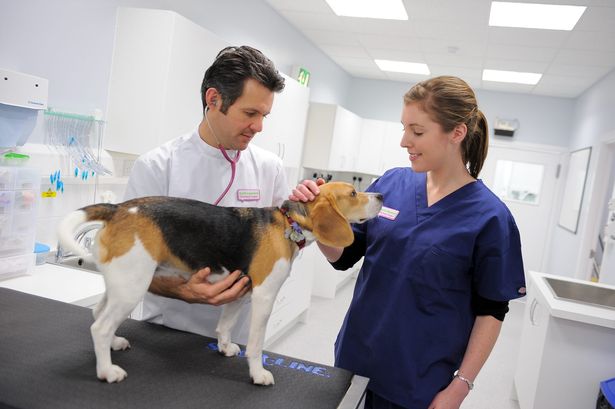
What vaccines does your dog need?
Mandatory vaccinations
Parvovirus
Parvovirus, or ‘parvo’ as it’s often known, is unfortunately still common in the UK, and can cause severe diarrhoea and vomiting in dogs. It is a particular risk for young, unvaccinated puppies, and can even be fatal without treatment. Parvo is easily spread through bodily fluids and can survive in outside environments for up to six months, meaning that pups can be at risk of catching it on their daily walk.
Thankfully, dogs can be protected from this awful disease by regular vaccination. Puppies can be vaccinated against parvovirus from six weeks old, and will need a booster vaccine at 1 year old. After this point, your vet will advise booster jabs every 1-3 years.
Distemper
The symptoms of this nasty virus are varied and range from a cough, runny eyes and nose, to diarrhoea, high temperature and even fits. Sadly this disease is often fatal, and as it spreads through the air, it can be very hard to control. Thanks to a robust vaccination programme, it’s now fairly rare in the UK, but it does still occur in dogs that are unvaccinated.
This is another vaccine that should be included in your puppy’s primary course of injections, and your vet should schedule your dog in for regular booster jabs too – usually every three years, but it may be more often depending on your dog’s general health and the prevalence of disease in the area.
Leptospirosis
Leptospirosis, or lepto, is caused by bacteria that damage vital organs such as the liver and kidneys, and symptoms include fever, jaundice, muscle pain, vomiting, diarrhoea and bleeding from the mouth and eyes. The disease is spread by infected dogs, mice, rats and cows, and can also be caught from infected water. It’s also possible for humans to catch leptospirosis from animals – this is often known as Weil’s disease and can cause serious illness.
Dogs need to be vaccinated against leptospirosis every year, and there are several different lepto vaccinations available, so speak to your vet about which will give your dog the best protection.
Infectious hepatitis
This virus, also known as ICH, adenovirus or Rubarth’s Disease, can attack your dog’s major organs, such as the liver, kidneys, eyes, lungs, and heart. Symptoms vary widely depending on which organs are being affected, and it’s extremely contagious, so your dog can catch it from being near another infected dog, or by touching something that an infected dog has come into contact with.
Optional vaccinations
Kennel cough
Your vet may recommend that your dog be vaccinated against kennel cough if they regularly mix with other dogs (such as at a doggy daycare, or if they spend time with a dog walker or at shows and events), or has a health condition that could make a kennel cough infection more serious.
Rabies
Although rabies isn’t an issue in the UK, it’s still prevalent in many areas of the world, so all dogs that travel in and out of the country will need to be vaccinated against rabies. Depending on where you’re going, your dog may need other vaccinations too – so make sure you check with your vet.
Good breeders and rescue centres will have given your dog their primary course of vaccinations before rehoming them, but it’s vital to ensure they’re getting their booster jabs regularly. If in doubt, contact your vet – they’ll be able to advise you on exactly what vaccines your dog needs.
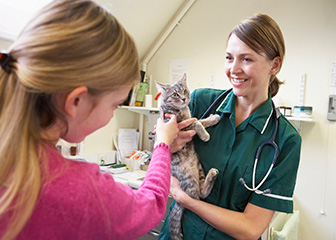
What vaccines does your cat need?
Vaccinating your kitten is one of the most important things you should do in your first few weeks as a cat owner, and it’s vital you keep on top of their yearly booster injections too.
Cat flu
The symptoms are similar to those experienced by humans, such as fever, frequent sneezing, a snotty nose, lethargy and coughing, but in serious cases, some cats can carry the virus for life. It’s very contagious and can be especially dangerous for young kittens.
Make sure your kitten is vaccinated against cat flu when they’re around 8-9 weeks old, and they’ll need regular booster vaccinations throughout their life too.
Feline infectious enteritis
Also known as feline parvovirus, or feline panleukopenia (FPV), this virus can cause serious damage to the intestines. The disease is widespread across the UK, particularly in areas where lots of cats are in contact with each other, and it can also be passed from pregnant cats onto their unborn kittens. Although vets can treat FPV if caught in time, the disease can often still be fatal, especially for young kittens.
While FPV is much less common than it used to be, unvaccinated cats are still at risk – so don’t let your kitten go outside or mix with other cats until they’ve been vaccinated, and female cats need to be fully vaccinated before becoming pregnant.
Feline chlamydophilosis
This disease used to be known as ‘feline chlamydia’ and attacks a cat’s eyes and nose, before progressing to affect their lungs, stomach, intestines and reproductive organs. It’s a highly contagious disease that can easily be passed from cat to cat, even for months after they’ve recovered, and is unfortunately quite common in the UK.
The best way to prevent your cat from catching this disease is ensuring that they’re vaccinated as a kitten and receive their booster jabs regularly.
Feline leukaemia virus
Feline leukaemia virus, also known as FeLV, is an infection which can lead to the development of several cancers, as well as a weakening of the immune system, meaning that your cat is vulnerable to other infections. It’s fairly common in the UK and is easily passed through infected bodily fluids such as urine, saliva, and milk.
Some cats can be affected permanently by FeLV, but vaccinated cats are much more likely to be able to fight the virus off, sometimes without even showing any symptoms.
Once your kitten has had their primary course of vaccinations, they’ll only need a booster jab every year to keep them safe from these horrible diseases. It’s also important to get your cat vaccinated even if they spend most of their time indoors. If you have any concerns, or aren’t sure when your cat’s next booster is due, your vet will be happy to help.
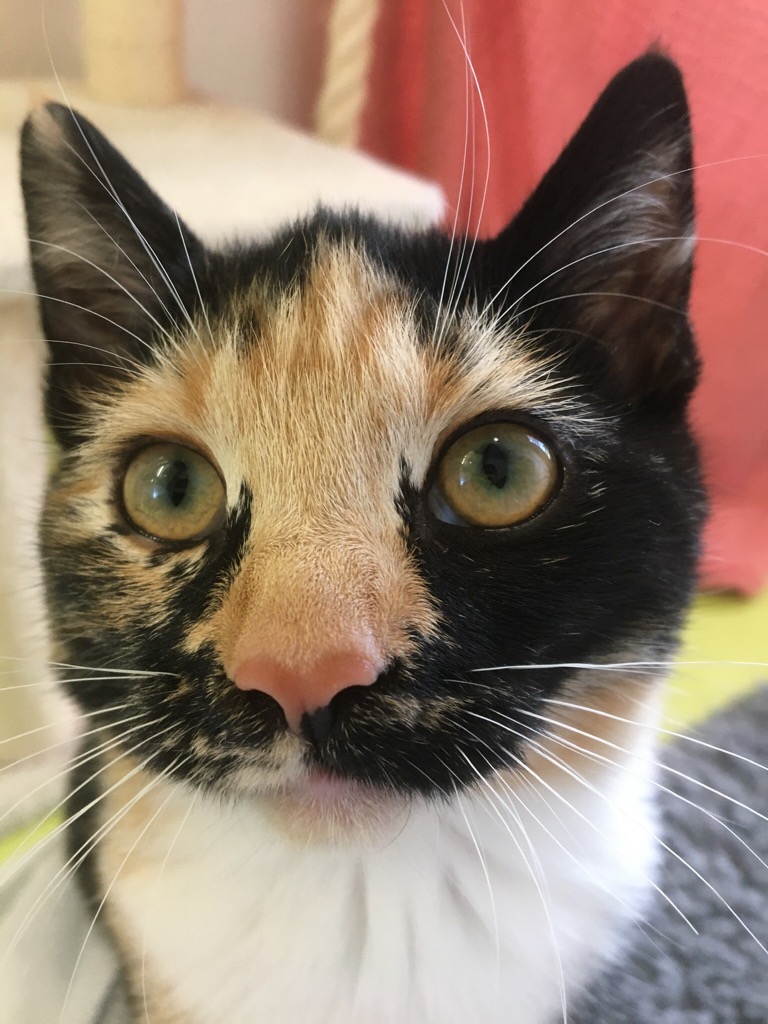
Do I have to vaccinate my pet?
Some pet owners ask about titre testing rather than vaccinating. This is a blood test that provides a snapshot picture of your pet’s antibodies at the time of the test and is only available and appropriate for a limited number of diseases that our pets are vaccinated against. You should always speak to your vet for advice.
We hope this gives you some information about vaccinations and why it’s the best option to ensure a happy, healthy pet! For more information speak to your vet.
Categories
- Appeals (6)
- Events (8)
- News & Updates (49)
- Happy Tails (6)
- Past Appeals (47)
- Past Events (37)
- Uncategorized (1)
- Support & Advice (33)
- Challenge Events (2)
- Other (4)
Recent Posts
Related posts


Help Doris breathe more easily

Puppy love, The tale of the fabulous four, and the fight against unlicensed breeding.

Honey's Heartbreaking Journey

To report cruelty or an animal in distress call 0300 1234 999


